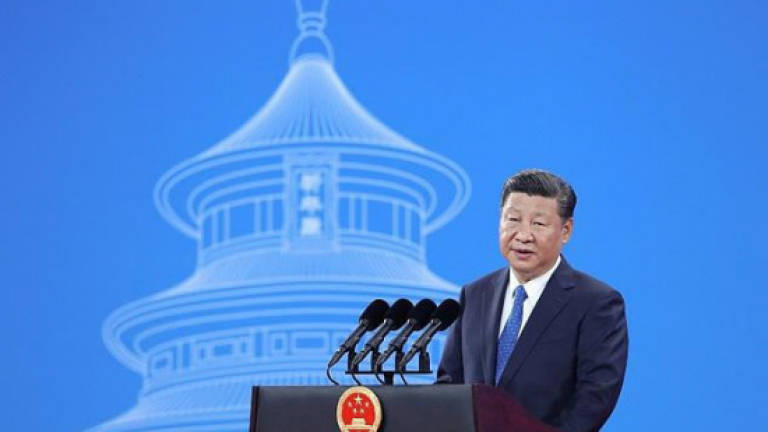Interpol meets in Beijing as China hunts for fugitives

BEIJING: Interpol opened its general assembly in Beijing on Tuesday as China seeks greater international help to repatriate alleged criminals – despite accusations it is using the international police organisation for political gain.
Some 1,000 public security officials and political leaders will discuss terrorism, organised crime and cybercrime at the four-day gathering.
Interpol eases the exchange of information between police forces from 190 countries and is therefore a crucial tool for China, whose President Xi Jinping has led an intensive crackdown on corruption that has extended beyond his country's borders.
Xi called for "global security governance" as he addressed the assembly.
"Countries should adopt a concept of common, comprehensive, cooperative and sustainable security, and jointly respond to security challenges," he said, according to the official Xinhua news agency.
Since 2014 Beijing has pursued its citizens abroad in what it calls "Operation Fox Hunt", seeking to repatriate allegedly corrupt officials who have fled.
Authorities say at least 2,500 nationals suspected of economic crimes have already been brought back.
Most Western countries including the United States do not have extradition treaties with China, where courts are overseen by the Communist Party and the use of force by police to extract confessions is believed to be common.
But at the request of member states, Interpol, which is based in the French city of Lyon, issues "red notices" – non-binding notifications of arrest warrants.
Human rights groups have raised concerns since Chinese public security vice minister Meng Hongwei was chosen as Interpol president last year.
"Interpol needs to explain how it will avoid becoming an arm of the Chinese government abroad, using red notices against dissidents and forcing people back to torture in China," said Human Rights Watch's China director Sophie Richardson, adding that the organisation's "credibility is on the line".
The dissident Wei Jingcheng, exiled in the US since 1997, said he feared that Beijing would use the international police institution to "repatriate political opponents".
The Chinese foreign ministry rejected such concerns as "unfounded".
Another issue likely to cause tensions at the general assembly is the Palestinian Authority's bid to join Interpol, which Israel opposes. — AFP